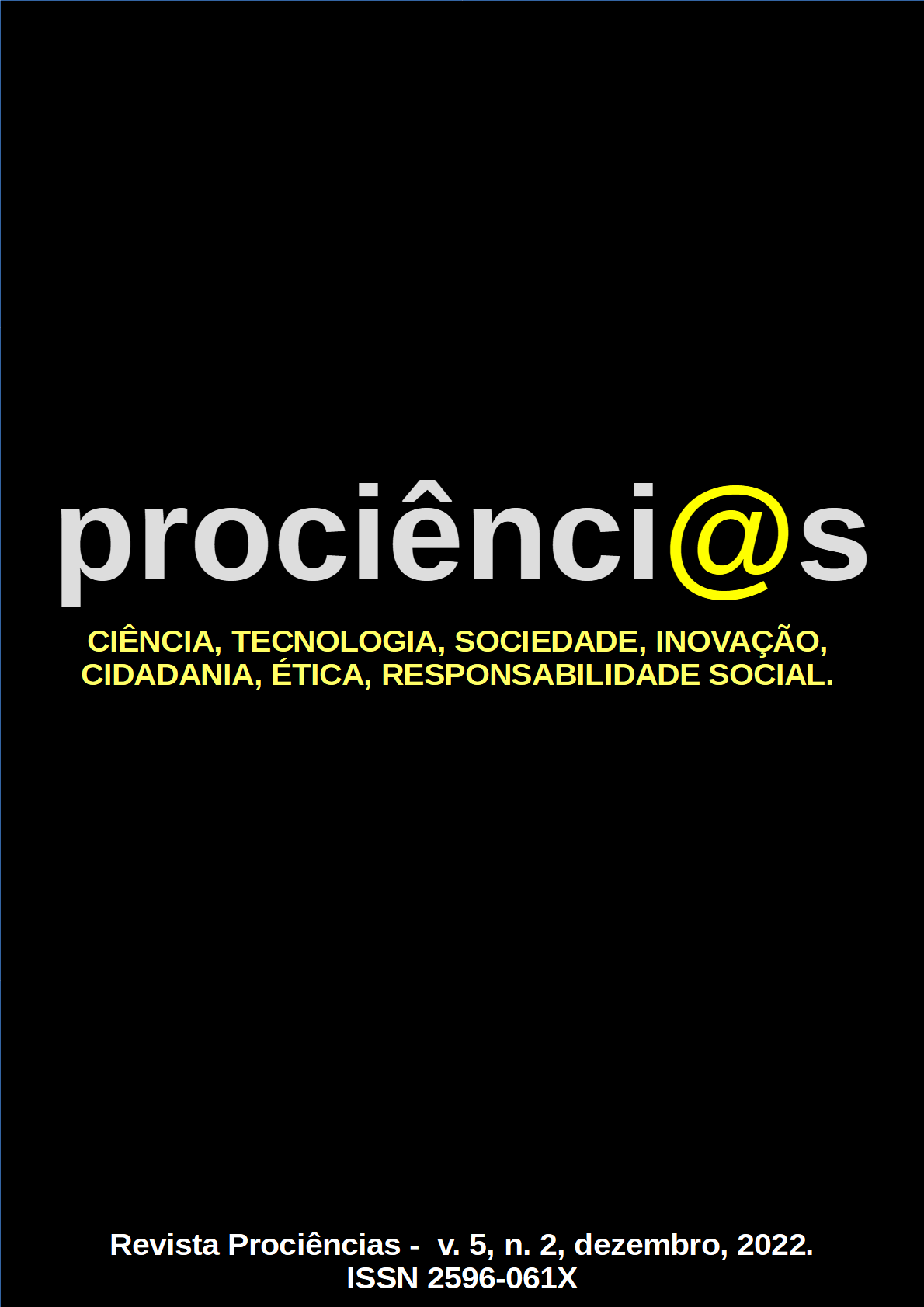MODELO DE EDUCACIÓN A DISTANCIA CUBANO
UN RETO PARA DOCENTES Y GESTORES UNIVERSITARIOS
Abstract
Educational systems at a global level are faced with the challenge of seeking innovative ways of executing their functions, in a world marked by increasing technological development. This research is aimed at analyzing the elements with the highest incidence during the implementation of the distance study modality in a career with an agricultural technical profile from the perception of its teachers and managers. For this, the Agroindustry Process Engineering career of the Agrarian University of Havana (UNAH) is taken as a pilot experience, with a sample of 44 teachers and using theoretical and empirical methods, while is taken as a reference the theoretical and methodological approach of the study DigCompEdu developed by the European Commission, taking into account some peculiarities of the Latin American and Caribbean region. The results have made it possible to identify shortcomings in the technological infrastructure and in the digital skills of teachers and managers as some of the main limitations for the implementation of the Distance Education Model, as well as, the need to improve the methodological scientific work for the sake of promote pedagogical forms and styles that respond to a learning based on the self-management of knowledge.
Downloads
References
Arellano Vega, A. I., & Andrade Cázares, R. A. (2020). Competencias digitales docentes en profesores universitarios. Innovación Educativa, 20(83).
Báez Pérez, C. I., & Clunie Beaufond, C. E. (2019). Una mirada a la Educación Ubicua. Revista Iberoamericana de Educación a Distancia, 22(1), 326–344. http://dx.doi.org/10.5944/ried.22.1.22422
Chavez Torres, A. (2017). Aprendizaje Estratégico en la Educación a Distancia. REvista Academia & Virtualidad, 10(1), 23–41. http://www.renovacionmagisterial.org/portada/sites/default/files/adjuntos/2019/07/19/AprendizajeEstrategicoEnEducacionADistancia.pdf
Cuetos Revuelta, M. J., Grijalbo Fernández, L., Argüeso Vaca, E., Escamilla Gómez, V., & Ballesteros Gómez, R. (2020). Potencialidades de las TIC y su papel fomentando la creatividad: percepciones del profesorado. RIED. Revista Iberoamericana de Educación a Distancia, 23(2). https://doi.org/10.5944/ried.23.2.26247
Fainholc, B. (2019). La educación y la 4ta revolución industrial: mentes sintéticas y tecnología. Prociencias, 2(2 dizembro).
Figallo R., F. (2020). Después de la educación presencial, ¿qué? Revista de Educación Superior En América Latina, 8. https://doi.org/10.14482/esal.8.371.35
García Aretio, L. (2020). Los saberes y competencias docentes en educación a distancia y digital. Una reflexión para la formación. RIED. Revista Iberoamericana de Educación a Distancia, 23(2), 09. https://doi.org/10.5944/ried.23.2.26540
García Pereira, A., & Dominguez Calvo, G. (2021). PROYECTO DE INTERVENCION PARA EL DESARROLLO DE COMPETENCIAS DIGITALES EN DOCENTES DE LAS CIENCIAS AGROPECUARIAS. Revista Prociências, 4(2), 92–106. https://doi.org/10.15210/PROCIENCIAS.V4I2.21627
Guardado De Castillo, K. M., Ramón, J., Capote, V., Lázaro, ;, & Viera Hernández, H. (2021). Formación de competencias digitales para la creación de recursos educativos digitales en la Facultad de Ciencias Naturales y Matemática de la Universidad de El Salvador. Revista Prociências, 4(2), 11–32. https://doi.org/10.15210/PROCIENCIAS.V4I2.21605
López-Leyva, S. (2016). Perspectivas globales de la educación superior. Revista de La Educación Superior, 45(179). https://doi.org/10.1016/j.resu.2016.06.002
Molinari, S. M. (2021). DESENVOLVIMENTO DE UMA INTERVENÇÃO EM COMPETÊNCIAS DIGITAIS NA ÁREA DE INFORMAÇÃO PARA PROFESSORES DA ESCOLA SECUNDÁRIA DE PAYSANDÚ NO URUGUAI. Revista Prociências, 4(2), 54–66. https://doi.org/10.15210/PROCIENCIAS.V4I2.21750
Páez-Barón, E. M., Corredor-Camargo, E. S., & Fonseca-Carreño, J. A. (2016). Evaluación del uso de herramientas sincrónicas y asincrónicas en procesos de formación de las ciencias agropecuarias. CIENCIA Y AGRICULTURA, 13(1). https://doi.org/10.19053/01228420.4808
Pitch Herrera, B., & Benitez Cárdenas, F. (2018). Transformaciones del modelo de educación a distancia en la educación superior cubana. Primeros resultados y retos (2015-2017). Congreso Universidad, 7(4). http://revista.congresouniversidad.cu/index.php/rcu/article/view/1060
Prendes Espinoza, M. P., Gutierrez Porlán, I., & Martinez Sanchez, F. (2016). Competencia digital: unanecesidad del profesorado universitario en el siglo XXI. RevistadeEducaciónaDistancia, 56(7). https://doi.org/http://dx.doi.org/10.6018/red/56/7
Rama, C., & Pardo, J. (2020). La educación superior a distancia : Miradas diversas desde Iberoamérica. May, 1–226. https://d1wqtxts1xzle7.cloudfront.net/58504492/La_EaD_Iberoamerica__miradas_diversas_-_Ram.pdf?1551198133=&response-content-disposition=inline%3B+filename%3DLa_EaD_Iberoamerica_miradas_diversas_Ram.pdf&Expires=1604967495&Signature=W4a~eSy7~O8S5hf0eBpSekuR
Rodríguez Espinosa, H., Restrepo Betancur, L. F., & Aranzazu Taborda, D. (2016). Desarrollo de habilidades digitales docentes para implementar ambientes virtuales de aprendizaje en la docencia universitaria. Sophia, 12(2), 261–270. http://dx.doi.org/10.18634/sophiaj.12v.2i.561
Ruiz Ortiz, L., Aballe Pérez, V., & Blanco Pérez, A. (2016). MODELO DE EDUCACIÓN A DISTANCIA DE LA EDUCACIÓN SUPERIOR CUBANA. http://moodle.uho.edu.cu/plugingfile.php/32522/mod_resource/content/1/mModelo de Educación a Distancia.pdf
Sousa Vidal, R., & Iriondo Otero, W. R. (2018). Utilizando o ambiente virtual de apendizagem Moodle em cursos de engenharia. Prociencias, 1(1 dezembro).
Valdés Montecinos, M., & Ganga-Contreras, F. (2020). Educación a Distancia en Latinoamérica : Algunos antecedentes históricos de su desarrollo Distance Learning in Latin America : Some historical background of its development. Revista Espacios, 41(04).


